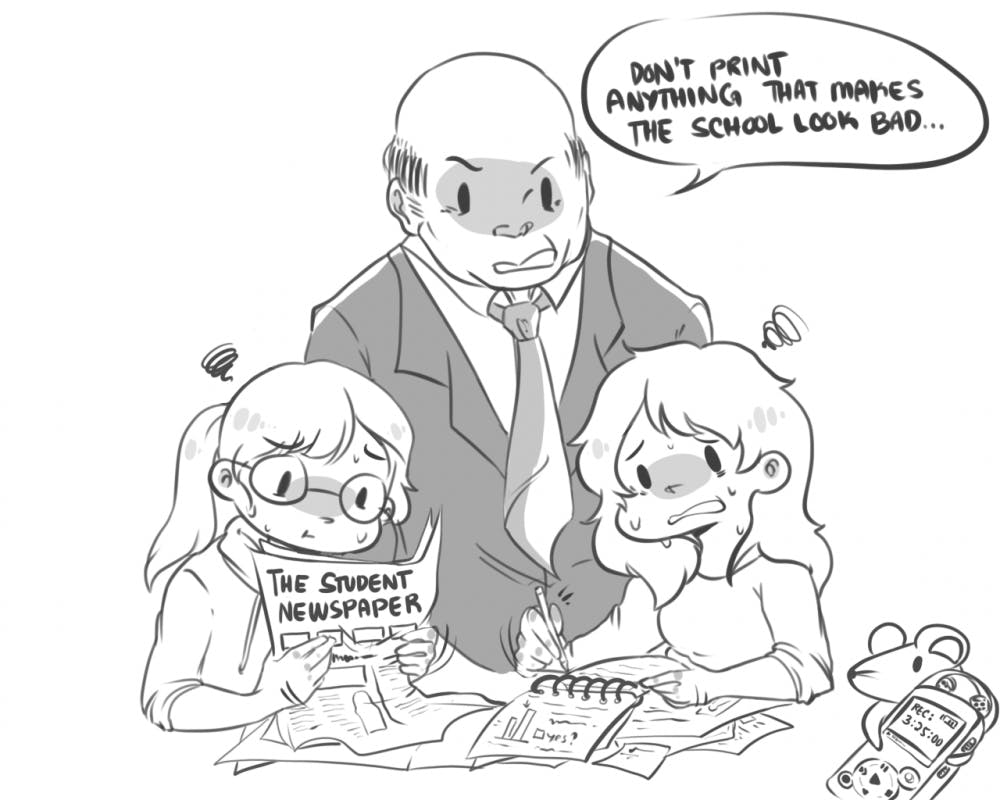Within the past year, The Spectrum broke the news of former UB Vice President Dennis Black’s embezzlement. We reported on the UB Foundation’s investment in fracking, UB cutting four sports teams and revealed that our SA president is not logging sufficient office hours.
Our coverage of international students being poorly integrated prompted the university to conduct a study on how to improve campus life for international students.
Our reporting has also brought awareness to low TA stipends and a lack of diverse faculty. We’ve reported on the lack of oversight for SUNY foundations and the ongoing battle of private-public partnerships on campuses.
We were able to bring this information to students because, as a fully independent student newspaper, we have complete editorial freedom. That means the school administration cannot dictate or censor our content. But this is not the case for all newspapers at public colleges and high schools.
We cannot imagine what our newspaper would look like if we did not have editorial freedom. We likely would not be able to publish our perennial-favorite sex issue, or report on the unfavorable behavior of UB officials, the SA and other UB organizations. Providing this information is a vital service for students and the community.
That’s why The Spectrum supports the New Voices Act, which is under consideration by the New York state legislature. The bill would ensure that high school and college newspapers could not be censored by school administrators.
At a college or high school, as in any community, watchdog journalism is essential to keep those in positions of power accountable, and to ensure that the public has access to consistent, quality information about what is happening in their communities. Without The Spectrum, the only news students would have access to would be one-sided, exclusively positive information, presented as public relations to improve the image of the university.
UB is a huge community and it is larger than many cities. That means without diligent coverage, important stories are missed. The mainstream media tends to overlook stories unfolding on college campuses. In fact, only 1.4 percent of mainstream media is devoted to education news, a Brookings Institution survey showed.
The fact that you are reading this article right now, whether in print or online, shows that you recognize on some level the importance of student journalism. And studies have shown that people tend to develop lifelong intellectual habits like newspaper reading in college –– more than 90 percent of students surveyed believed that reading newspapers is important to their education, according to the 2015-16 Campus Life Fee Report on the Student Accounts website.
Studies show also that the best way to teach civics is for students to discuss contemporary political issues in classrooms and on campuses. Censorship prevents this. Students who work in newsrooms emerge more engaged citizens and more supportive of press freedoms as adults, according to research by the University of Kansas.
The Spectrum shows what can be accomplished with editorial freedom, and we believe students everywhere should have the same autonomy with what they can publish.
Young people have always started revolutions, and now it is our turn to be the watchdogs for the powerful. Democracy cannot function without a free press. Students at public schools should have the right to uncensored information as much as any citizens in this democratic country, which is why the New Voices Act is vitally important and fully endorsed by The Spectrum.
The opinion desk can be reached at opinion@ubspectrum.com.





